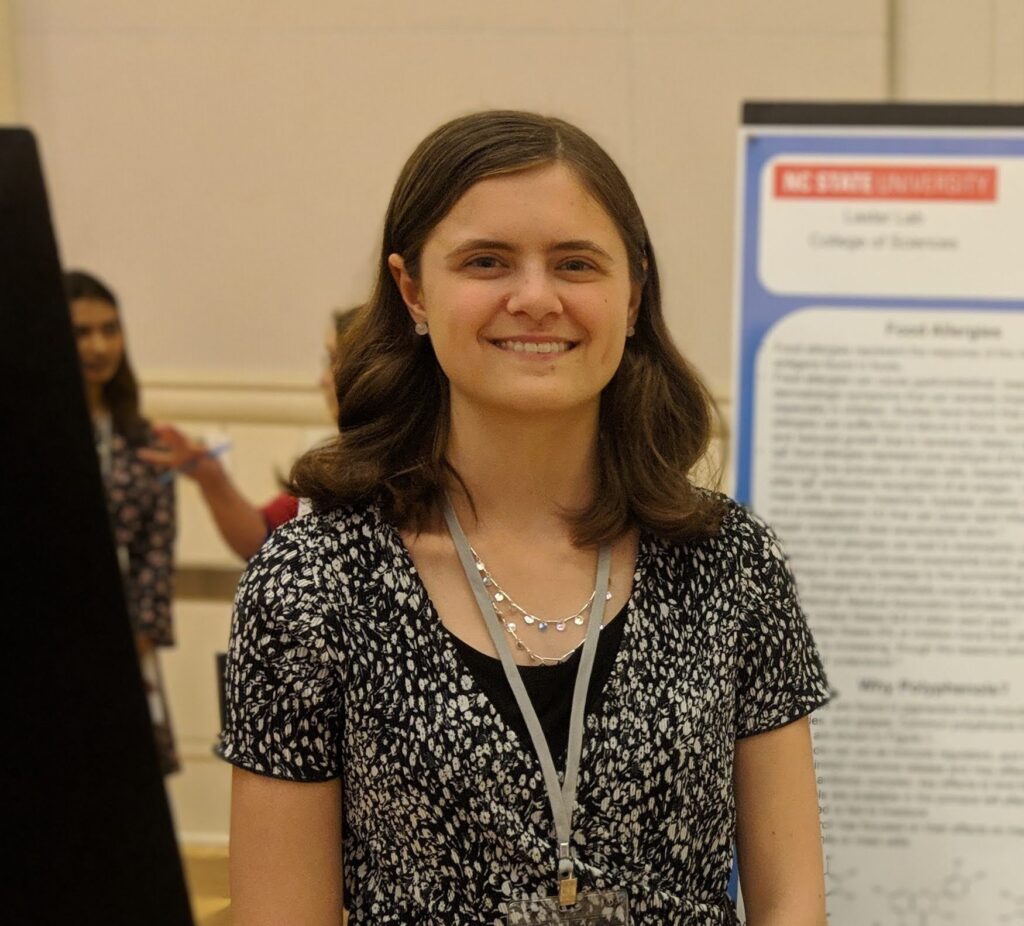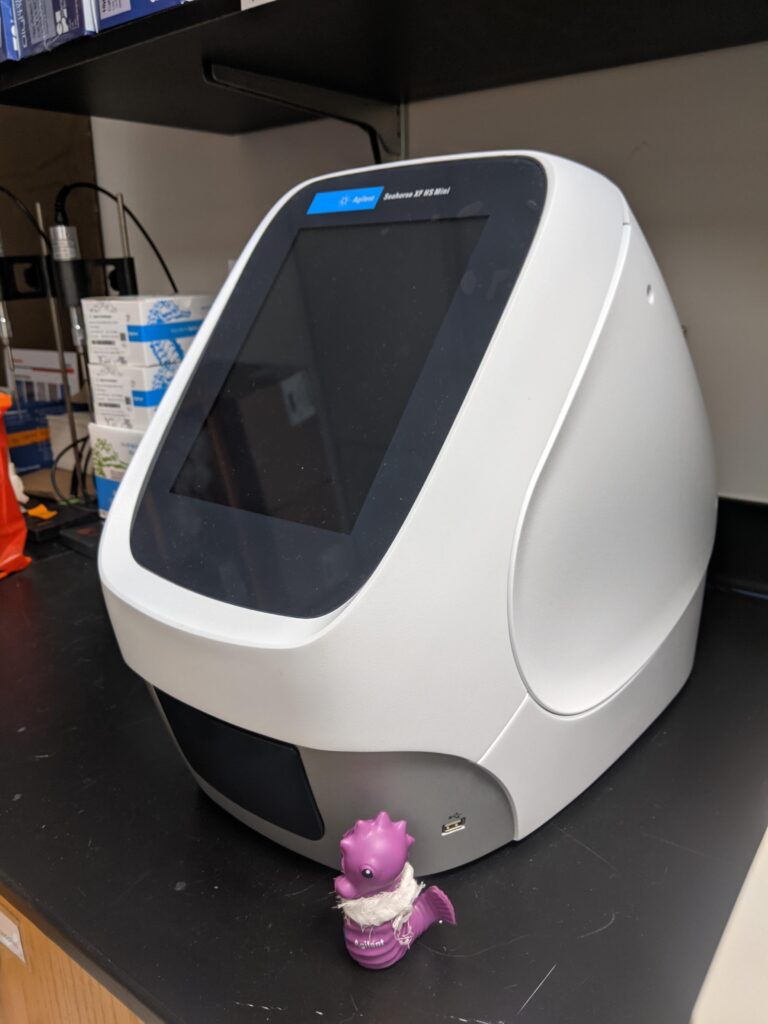Meet Rose!
When students in the Biotechnology Program show up to their lab classes, they may not think about how much behind-the-scenes work goes into ensuring their experiments run smoothly. One person who is instrumental in the functioning of the core class (BIT 410/510) this year is Rose Krebs, the Program’s post-bac.

Rose graduated from NC State in 2021 with a minor in biotechnology. She took the core class, the main prerequisite for the BIT minor, in the fall of 2019, which was the last semester it was offered completely in-person. “I’m glad I was able to take it in person,” she said, “because it was a really fun, hands-on class.” It also enabled her to gain experience with techniques that she wouldn’t have otherwise. For example, though she did research as an undergraduate, her only exposure to affinity chromatography and SDS-PAGE came through the core class. After taking the core class, Rose finished the minor, taking classes on yeast metabolic engineering and RT-PCR. She also took the professional development class (BIT 402), which helped her “enhance [her] professional skills” and figure out a timeline for applying to jobs. “I went to a lot of workshops through the career development center, but it was really cool to have a class specifically tailored for the biotechnology industry,” she said.
She also participated in the BIT SURE program in the summer of 2020. Though the program had to be virtual due to the COVID-19 pandemic, she was able to work with Dr. Goller on two different projects. Each one used KBase, which is an online resource from the Department of Energy that offers tools for “genome assembly, metabolic modeling, gene expression, and comparative genomics.” One of her projects was creating a way to teach students to use KBase for genome assembly, which is now used in Dr. Goller’s Metagenomics course (BIT 477/577). “I worked with KBase to design a workflow that would teach students to assemble reads into full genomes and interpret their results,” she said. Her other project utilized KBase to compare the pangenomes of different species of Delftia bacteria. She was able to present her results at the 2020 NCSU Summer Undergraduate Research Symposium.
One of Rose’s primary jobs involves setting up and troubleshooting the experiments for BIT 410/510, which enrolls over 100 students per semester. Before students come to lab each week, Rose runs through everything they’ll be doing in lab to ensure that all the equipment and reagents are working properly. If something goes wrong, she works with Becca, the BIT Program’s new lab manager, to troubleshoot the problem. Because BIT 410/510 involves a wide range of experiments and techniques, setting the labs up looks very different from week to week. Some of her tasks include “culturing bacteria, mammalian cell culture, preparing solutions, and ordering materials.”
Beyond helping with labs for the core course, Rose is also helping instructors design new courses for the BIT Program. She’s currently working with Dr. Srougi on BIT 495: Cancer Drug Discovery & Development, which is a new course launching in session 2 next semester. The course will focus on the metabolism of breast cancer cells, so she’s been doing a lot of cell culture. Her role is mostly assisting Dr. Srougi in optimizing the experiments for the class and ensuring that everything will work properly for students once they get to class. “Right now, I’m working on an assay we’ve developed by ourselves for the course,” she said. She also got to use the Seahorse instrument recently to measure the cells’ oxygen consumption. Later in the semester, she will move on to helping other instructors with their courses, such as Metagenomics.

Rose is excited to continue getting to learn new techniques as she works with various BIT courses. “This position is really great for me because I wanted to broaden my horizons in terms of science,” she said. Though she’s not completely sure that a life in research is for her, she’s glad that she can experience a lot of different research areas within her position, which will give her the opportunity to see if any of them are particularly interesting to her. Whether she continues in the research field or not, she’d like to join a volunteer program, such as Americorps, after finishing her post-bac position. “I may decide to take a different path,” Rose said, but for now, she’s enjoying her work with the Biotechnology Program and all of the experiences it offers.
- Categories: